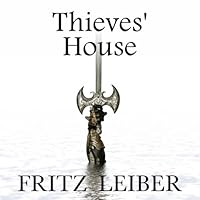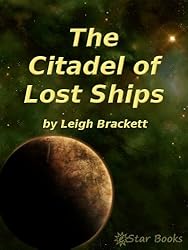SHORTS: In this week’s column we review several short fiction works that we’ve read recently, including three more of the current Retro Hugo nominees from 1943.

![]() “Galatea” by Madeline Miller (2013, $3.99 on Kindle; anthologized in xo Orpheus, edited by Kate Bernheimer)
“Galatea” by Madeline Miller (2013, $3.99 on Kindle; anthologized in xo Orpheus, edited by Kate Bernheimer)
In the Roman myth of Pygmalion and Galatea, a sculptor creates a statue so beautiful that he falls in love with it. Aphrodite has mercy on him and turns the statue into a real woman, Galatea, so that he can marry her. Madeline Miller picks up the tale eleven years later. Galatea has borne a daughter. She’s also learned something unsavory about her husband: he liked her better before she had thoughts and a voice.
As “Galatea” begins, she is being punished for defying him. He has her confined, supposedly for her health, unable to see her daughter. He still comes to visit her by night, though, fetishizing the long-ago moment of her transformation. Galatea begins to hatch a plan to regain her freedom and take her revenge.
The writing is vivid, as we’ve come to expect from Miller. The subject matter is disturbing, as it deals with spousal abuse. It may be set in a mythic past, but it feels like it could be relevant to any time period; I was reminded of Victorian hysteria and Stepford wives and the modern misogynist movements all at once. The ending is sad yet satisfying. (Please do be aware that this truly is a short story, not a novella.)
And if you find you like her style, run, don’t walk, to pick up Circe, because it’s awesome. ~Kelly Lasiter
![]() “Thieves’ House” by Fritz Leiber (1943, originally published in Unknown Worlds magazine, $1.99 on audio, collected in Swords Against Death). 1944 Retro Hugo award nominee (novelette)
“Thieves’ House” by Fritz Leiber (1943, originally published in Unknown Worlds magazine, $1.99 on audio, collected in Swords Against Death). 1944 Retro Hugo award nominee (novelette)
I’ve read all of Fritz Leiber’s FAFHRD AND THE GRAY MOUSER (LANKHMAR) stories. “Thieves’ House,” which is up for a Retro Hugo Award this year, was originally published in 1943 in Unknown Worlds. It is best read now in the second LANKHMAR story collection, Swords Against Death. I highly recommend the audiobook versions, which were commissioned by Neil Gaiman and are fabulously performed by Jonathan Davis, one of my favorite narrators. If you prefer you can purchase just the one story in audio (there’s a graphic novel version, too) but I’d recommend the entire collection and, preferably, starting with the first collection, Swords and Deviltry, which is even better.
Fafhrd, the great northern barbarian, and his friend Gray Mouser, the slim thief, have a feud going with the Lankhmar Thieves’ Guild. The guild tricks the boys into stealing a very dangerous item and then lures them into the Thieves’ House so they can get revenge. But Fafhrd and the Gray Mouser are clever, resourceful, and (mostly) agile. They won’t go down easily.
“Thieves’ House” is far from the best of Leiber’s FAFHRD AND THE GRAY MOUSER tales, but it’s a good representation of the sword & sorcery duo’s “classical rogue” period, as Gaiman puts it in his introduction to the audiobook version. It’s adventurous, fast-paced, and amusing. So many of fantasy literature’s sword & sorcery duos were modeled on Leiber’s tales of these two men who are, physically, almost total opposites, but who share a deep bond based on mutual respect, common goals, and adherence to the same ethical standards. ~Kat Hooper

![]() Attitude by Hal Clement (1943, originally published in Astounding magazine; collected in The Essential Hal Clement, Volume 2). 1944 Retro Hugo award nominee (novella)
Attitude by Hal Clement (1943, originally published in Astounding magazine; collected in The Essential Hal Clement, Volume 2). 1944 Retro Hugo award nominee (novella)
Dr. Little wakes up abruptly. The last thing he remembers is being in his room on the spaceship Gomeisa; now he’s alone, locked in a strange room, with nothing to eat but a green, translucent sphere of lime juice that’s injected into his room every few hours, which gets old fast. When the huge ship in which Little is imprisoned finally lands on a desolate alien world, Little finally sees his captors, eight-foot-wide starfish-shaped aliens, and is allowed to rejoin his crewmates from the Gomeisa.
The starfish aliens have also imprisoned a group of Vegans, which appear to be large, furry caterpillar-shaped beings. A Vegan interpreter tells the humans that their captors have treated them reasonably well and allow them a fair amount of freedom as well as access to their supplies, but keep them under observation at all times and whisk away anything that looks like it will be used for a weapon. The Vegans and humans (most of them, at least) can’t understand the motives of their mystifying starfish captors. Why are they treating their captives so oddly, and what can be done to escape?
Hal Clement’s Attitude is fairly typical of Golden Age hard science fiction: a straightforward tale of valiant men solving a knotty problem on an alien world. (No women appear in the pages of this novella.) The characterization is superficial and the human characters largely forgettable; Clement’s focus is on the plot and the details of the science and technology that Doc Little and his crewmates hope will allow them to escape. On an intellectual level it’s a fairly engaging puzzle story that’s reasonably well told for its era, but nothing in Attitude marked it as particularly outstanding or memorable science fiction from my point of view. ~Tadiana Jones
![]() “Citadel of Lost Ships” by Leigh Brackett (1943, originally published in Planet Stories magazine, $0.99 on Kindle). 1944 Retro Hugo award nominee (novelette)
“Citadel of Lost Ships” by Leigh Brackett (1943, originally published in Planet Stories magazine, $0.99 on Kindle). 1944 Retro Hugo award nominee (novelette)
Roy Campbell is a fugitive, running from the Terra-Venusian Coalition Government that is chasing him. Seeking refuge with the Kraylens on Venus, he learns that the greedy coalition is planning to wipe out the Kraylens and take their land. When Roy approaches a wandering space colony called the Romany to ask if the Kraylens can join them, he walks right into the middle of a civil war. Will he be able to solve the Romany problem and save the Kraylens before forces from Earth arrive?
Leigh Brackett’s “Citadel of Lost Ships,” published in the March 1943 issue of Planet Stories, and up for a Retro Hugo Award, is a typical 1940s space opera with some cool scenery, a handsome rebellious hero, a sexy female who falls instantly in love with him and cries when he leaves, and a total disregard for the physics of space travel.
I love Brackett’s Romany space colony, a bunch of dilapidated ships connected by pipes, and would love to read more stories in that setting. That’s all I loved, though. “Citadel of Lost Ships” was simplistic in style, plot, and structure. The short choppy sentences, repetitive use of the same adjectives (“indigo” is used eleven times in this novelette), and low-level vocabulary just didn’t give me much to sink my teeth into. Here are a couple of representative quotes:
He nursed a drum between his knees. It stopped being just a drum when he touched it. It was his own heart, singing and throbbing with the hate in it.
Enemy fire was slackening. Stella was doing all right. The last of the Kraylens shoved through the door. Campbell bounded up the steps. Stella got up off her belly and smiled at him. Her eyes shone.
“Citadel of Lost Ships” wouldn’t be my choice for the Retro Hugo, but I’m glad that I was able to sample Leigh Brackett’s work. ~Kat Hooper







Do it! One of the best things I've read in recent years.
This reminds me. I want to read Addie LaRue.
We’re in total agreement David!
I felt just the same. The prose and character work was excellent. The larger story was unsatisfying, especially compared to…
Hmmm. I think I'll pass.